- Call us: 01444 237070
- Contact Us
- Stores
- Sign In / Register
-
- Back
- Used Cameras
- Used Accessories
- Used Lenses
- Used Video
- Used Film Equipment
- Used Stock Alert
- Used Blank Test
- Sell or Part Exchange
- Used Clearance
- Recently Added Used Equipment
- Park Picks
- All Used Black Friday Deals
- Faulty
- Trade-In
- Blog
- New in
- Call us
- Contact us
- Stores
- Sign in
- Categories
- Tips & Inspiration
- Reviews
- News
- Events
- Features
- Buying Guides
- Competitions
Canon EOS C70 Specs Comparison
Canon has long produced high end pro video cameras and the release of the EOS C70 marks a new era for their EOS Cinema range. The adoption of the mirrorless RF mount will not come as a surprise to some, as the latest lens mount presents several distinct advantages for light gathering. The C70 doesn’t stop there though and has several tricks up its’ sleeve to entice a range of users from documentary makers to corporate video and social media production companies.
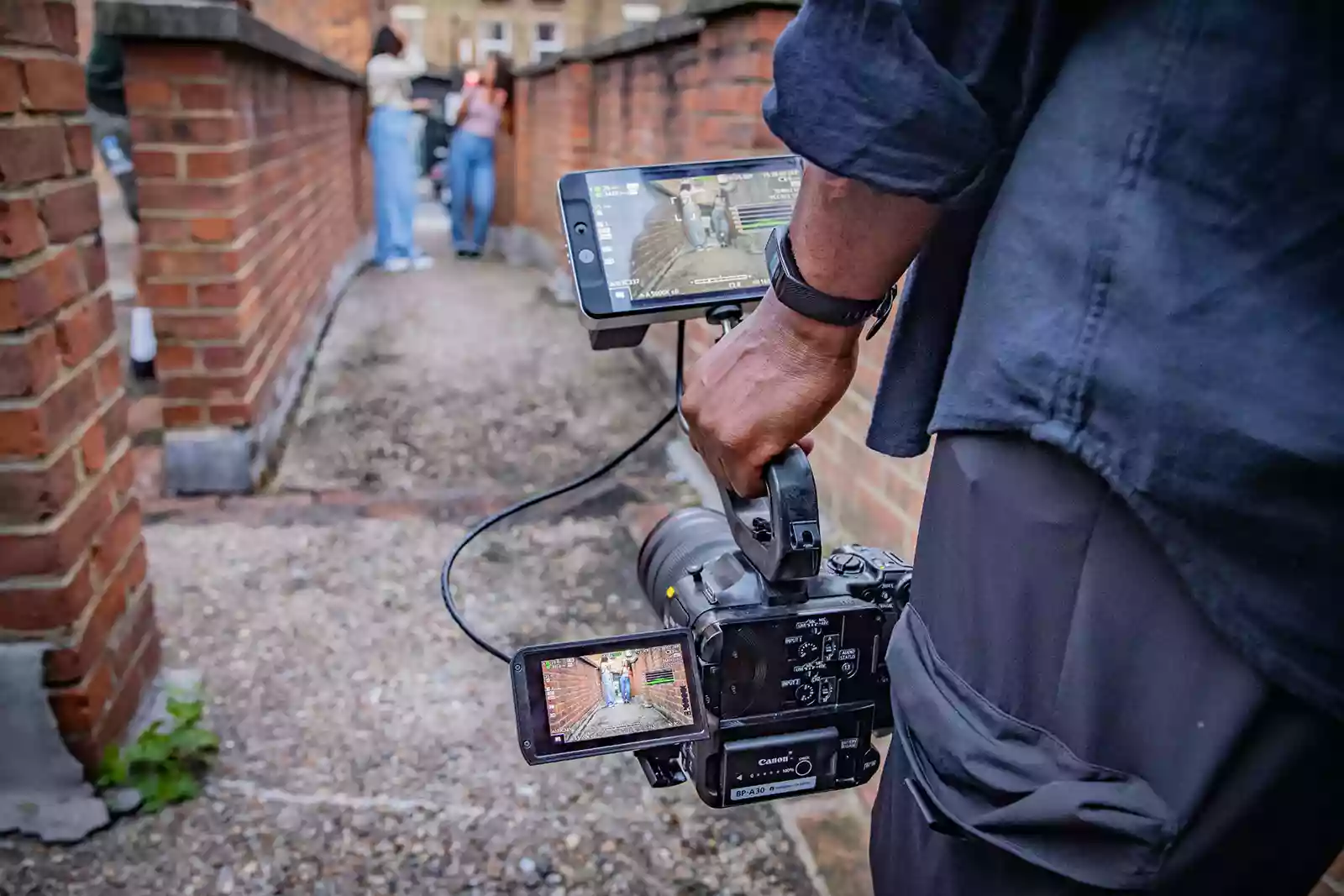
Our post looks at the specifications of the C70 compared with similar EOS Cinema models in the range, which use existing EF or PL mount lenses. We also provide a video review from Gareth Evans, our own video expert who has been shooting with the C70.
CANON EOS C70 SPECS COMPARISON TABLE
Our table comparison between four Canon EOS Cinema cameras shows the lengths Canon has gone to ensure the new model rewards users with a great degree of pro level features coupled with flexibility.
|
EOS C100 Mk II |
EOS C70 |
EOS C200 |
EOS C300 Mk III |
|
|
SENSOR |
Super 35mm CMOS |
Super 35mm DGO CMOS |
Super 35mm CMOS |
Super 35mm DGO CMOS |
|
SENSOR SIZE (EFFECTIVE MP) |
Approx 8.29 MP |
Approx. 8.85 MP (4K / 2K) Approx. 8.29 MP (4K UHD / FHD) |
Approx. 8.85 MP (4K / 2K) Approx. 8.29 MP (4K UHD / FHD) |
Approx. 8.85 MP (4K / 2K) Approx. 8.29 MP (4K UHD / FHD) |
|
RECORDING RESOLUTION |
Full HD |
4K / 4K UHD / 2K / FHD |
4K / 4K UHD / 2K / FHD |
4K / 4K UHD / 2K / FHD |
|
RECORDING FORMAT/DATA RATE (MAX) |
AVCHD 28Mbps MP4: 35Mbps |
XF-AVC / MXF: 410Mbps MP4: 150Mbps MP4 (HEVC): 225Mbps |
Cinema RAW Light: 1Gbps XF-AVC: 160Mbps MP4: 150Mbps |
Cinema RAW Light: 1Gbps XF-AVC/MXF: 410Mbps |
|
DYNAMIC RANGE |
12 Stops (CANON LOG / Wide DR) |
16+ Stops (CANON LOG2) |
13 Stops (CANON LOG3*) |
16+ Stops (CANON LOG2) |
|
FILE TYPE |
MP4 |
XF-AVC (MXF) ALL-I or Long GOP MP4 |
Cinema RAW LIGHT XF-AVC (MXF) MP4 |
Cinema RAW Light (CRM) XF-AVC (MXF) ALL-I or Long GOP |
|
SAMPLING/BIT DEPTH |
4:2:2 10-bit Via HDMI 4:2:0, 8-bit |
XF-AVC ALL-I or Long GOP. 4:2:2 10-bit MP4 H.265/HEVC, 4:2:2 10-bit, MP4 H.264 4:20, 8-bit |
RAW:10 / 12-bit XF-AVC/MP4: 4:2:0 8-bit |
RAW:10-bit / 12-bit XF-AVC: 4:2:2 10-bit XF-AVC: 4:2:0 8-bit Long GOP (Proxy) |
|
FRAME RATE (PAL) |
50p / 25p / 50i |
50p / 25p / 50i |
50p / 25p |
50p / 25p |
|
MAX FRAME RATE (PAL) |
Slow & Fast Function x0.5 / x2.0 |
MAX 120 FPS (4K RAW / 4K) MAX 180 FPS (Super 16mm crop 2K / FHD). Audio recording at normal frame rate possible |
MAX 50 FPS (4K RAW / 4K) MAX 100 FPS (FHD) |
MAX 120 FPS (4K RAW / 4K) MAX 180 FPS (Super 16mm crop 2K / FHD) |
|
RECORDING MEDIA |
SD CARD X2 |
SD CARD X2 |
CFast 2.0™ (CRM) X1 SD CARD (PROXY, XF-AVC/MP4) X2 |
CFexpress 2.0 X2 SD CARD X1 |
|
Timecode |
No |
Yes |
No |
Yes |
|
Genlock |
No |
No |
No |
Yes (when paired with EU-V1/EU-V2 expansion unit. Input only/also serves as SYNC out connector) |
|
AUDIO |
AVCHD: Linear PCM (16-bit 2 channels (48Khz) when 28 or 24Mbps selected or Dolby Digital. MP4: MPEG-4 AAC-LC (16 bit / 48 KHz) Bit rate: 35 - 17Mbps 256kbps, less than 4Mbps: 128kbps |
XF-AVC: Linear PCM (24-bit / 48 kHz), 4 channels MP4: MPEG-2 AAC LC (16-bit, 48 kHz, 2-channel) / Linear PCM (16-bit, 48 kHz, 4 channels) |
Cinema RAW Light: Linear PCM (24-bit / 16-bit / 48 kHz / 4 channels) XF-AVC: Linear PCM (24-bit / 48kHz / 4 channels) MP4: MPEG-2 AAC-LC (16-bit / 48 kHz / 2 channels), Linear PCM (16-bit / 48 kHz / 4 channels) |
Linear PCM (24-bit / 48kHz), 4 channels |
|
DUAL PIXEL CMOS AF |
Yes, 25% Centre Area of sensor |
Yes; Within 80% horizontal and vertical range of sensor area |
Yes; Within 80% horizontal and vertical range of sensor area |
Yes; Within 80% horizontal and vertical range of sensor area |
|
FOCUS ASSIST/POINTS |
No |
Yes, 2 points |
Yes, 2 points |
Yes, 2 points |
|
BUILT-IN ND FILTERS |
Yes, 2 / 4 / 6 Stops |
Yes, 2 / 4 / 6 / 8 / 10 Stops |
Yes, 2 / 4 / 6 / 8 / 10 Stops |
Yes, 2 / 4 / 6 / 8 / 10 Stops |
|
ANAMORPHIC SUPPORT |
No |
Yes x2.0 / x1.3 |
No |
Yes x2.0 / x1.3 |
|
LENS MOUNT |
Canon EF |
Canon RF |
Canon EF |
Canon EF User changeable options: Canon EF Cinema Lock Mount PL Mount |
|
DIMENSIONS (Body Only) |
147 x 174 x 169 mm |
160 x 130 x 116 mm |
Approx. 144 x 153 x 179 mm |
Approx 153 x 148 x 168 mm |
|
WEIGHT (Body Only) |
Approx. 1125g |
Approx. 1170g |
Approx. 1430g |
Approx. 1750g |
We also see that the C70 does reduce size and weight as well as cost when compared to other models in the range, only beaten in size by the EOS C100 Mk II. This is not the closest camera in the pro video range though, as the C70 shares a number of features with the higher end EOS C300 Mk III. The C70 particularly shines over the C300 with its’ advanced audio capabilities together with versatile dual card slot recording, although to slightly slower SD cards.
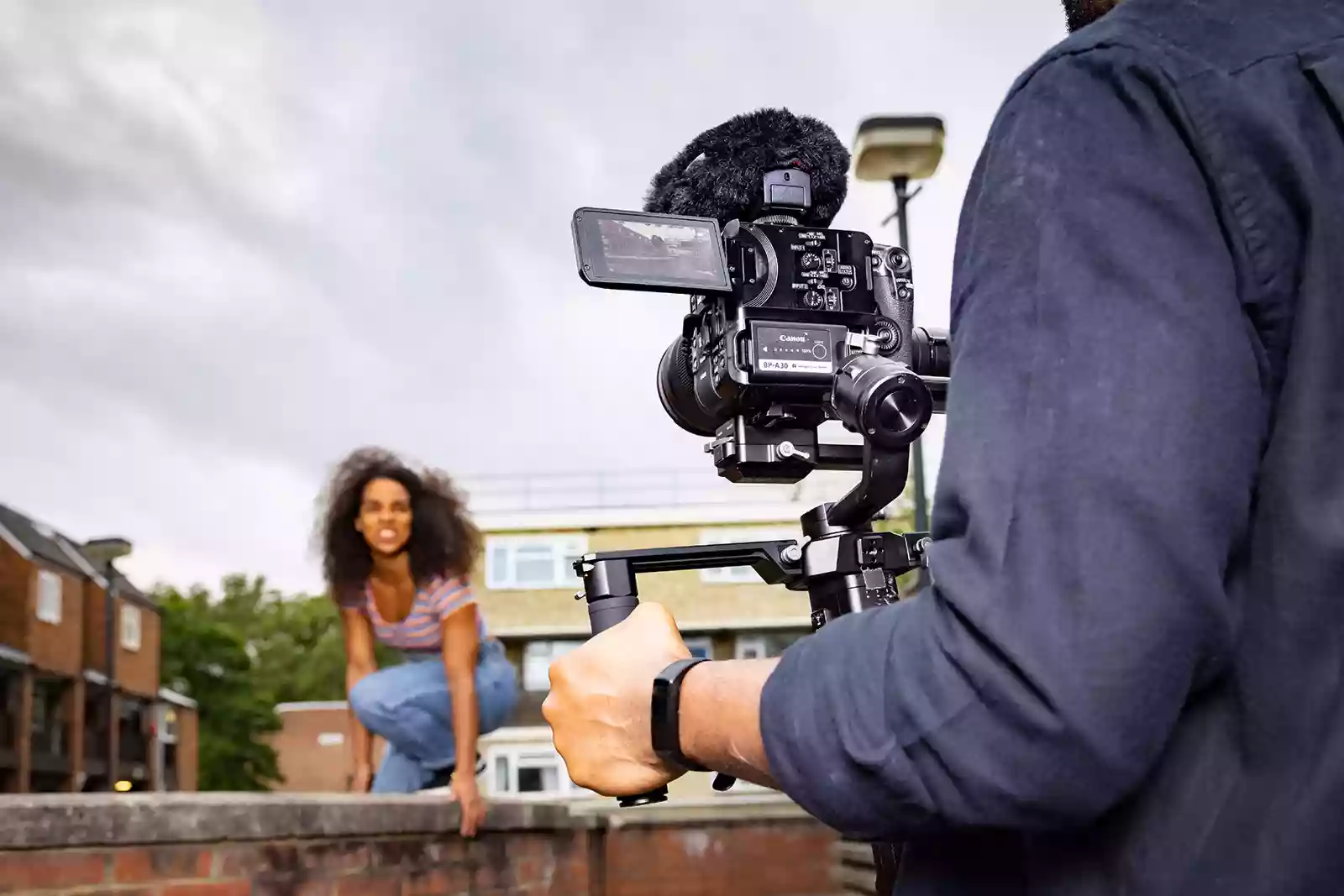
Watch Our Video Review - Canon EOS C70 First Look Compact Cinema Camera with RF Mount
EOS C70 Lens flexibility
The EOS C70 lens mount accepts RF lenses directly, but users with existing EF lenses will be able to buy an RF to EF adapter and use their existing optics. Doing so provides a 1 stop light advantage as well as excellent integration with the camera body. Stabilisation is best with RF lenses as the cinema camera fully integrates with that mount, however optical stabilisation from EF lenses will still be available when present in the lens. At the time of release the EF 24-70 f/2.8, EF 24-105 f/4, and EF16-35 f/2.8lenses allow for complete optimum electronic communication between lens and body, although Canon will be adding further models over time.
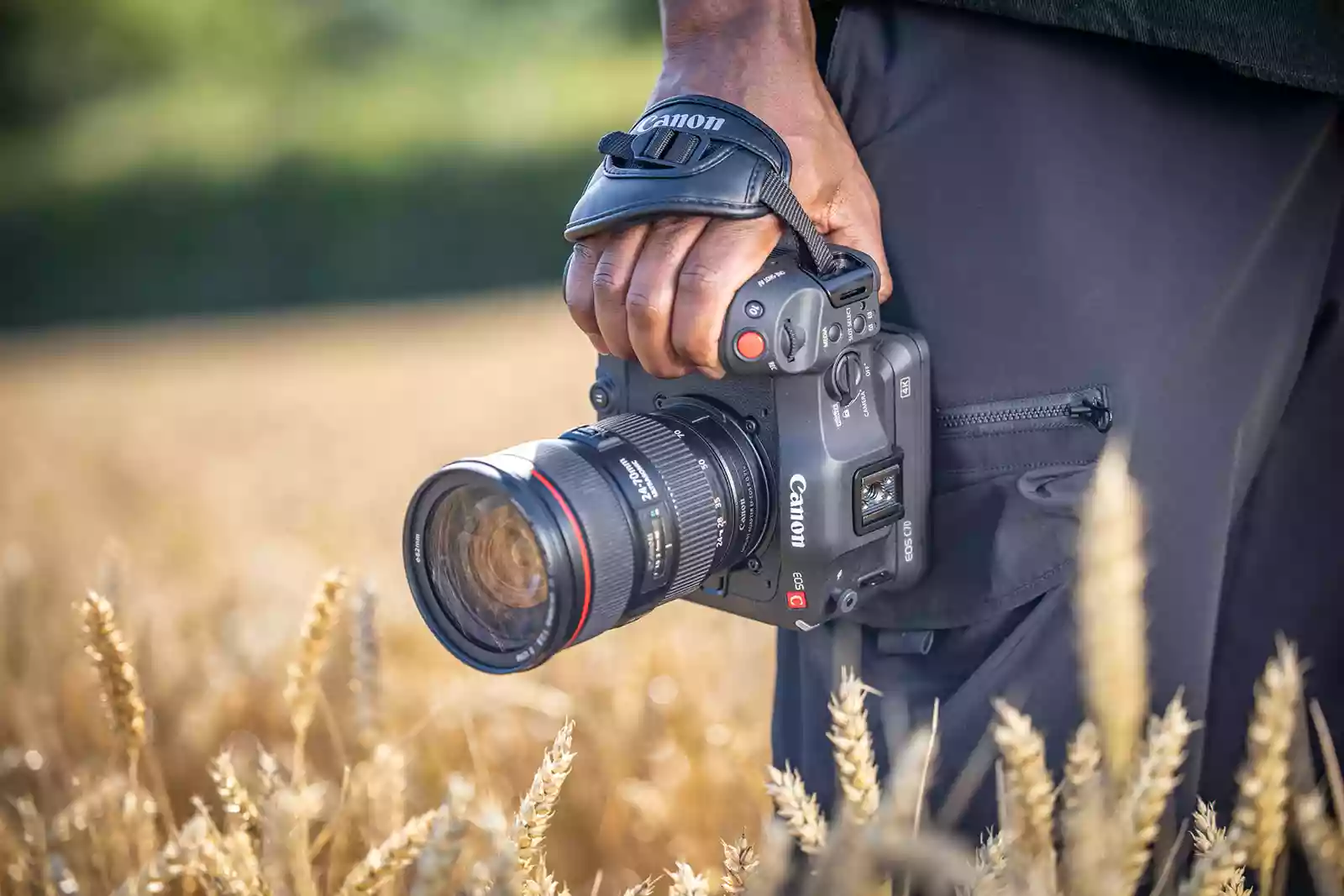
Other noteworthy features
Class leading 16+ stops of dynamic range will be most welcome from the Super 35mm DGO CMOS sensor which matches the higher priced EOS C300 Mk III. This comes from Canon Log2 although Log3 is also available and provides 14+ EV stops of dynamic range. Movie makers who record slow motion gain 120p in 4K. This allows for beautifully smooth high resolution action to be slowed without any loss of quality.
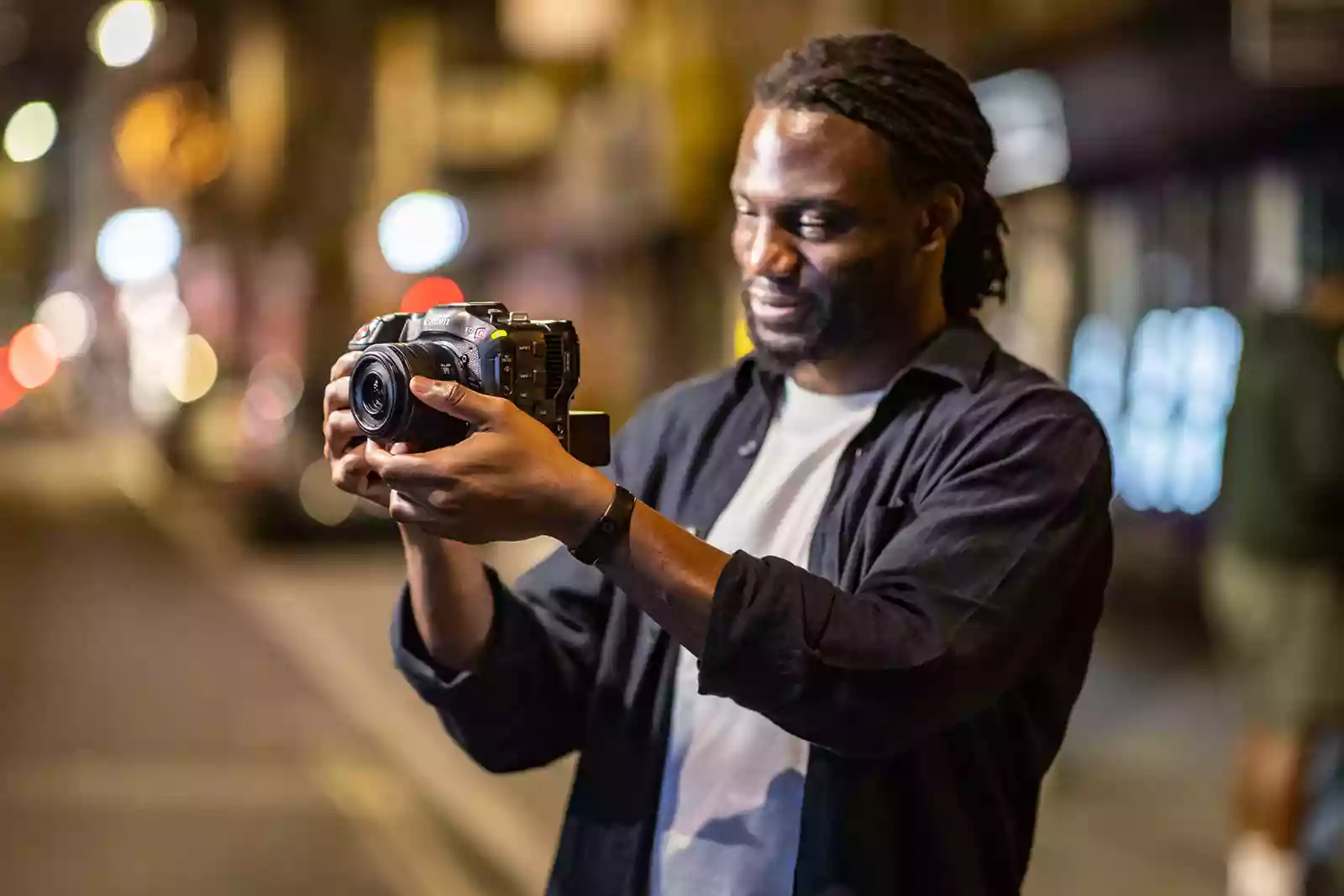
Video recording times
There’s been some noise around recording times of the mirrorless R5 camera with unheard of 8K video capabilities. With the C70 being a video-only body we expect recording time to an SD card of approximately 156 minutes with XF-AVC / MXF: 4096 x 2160 at 410 Mbps. Recording longer than well over two hours seems unlikely in the majority of circumstances so this is more than enough for almost any application at full bit rate. Reaching this duration will require a 512gb SD memory card which is virtually at the current limit for that format. For those who do need to record for longer a lower 150Mbps can be selected in MP4 which enables 428 minutes of recording.
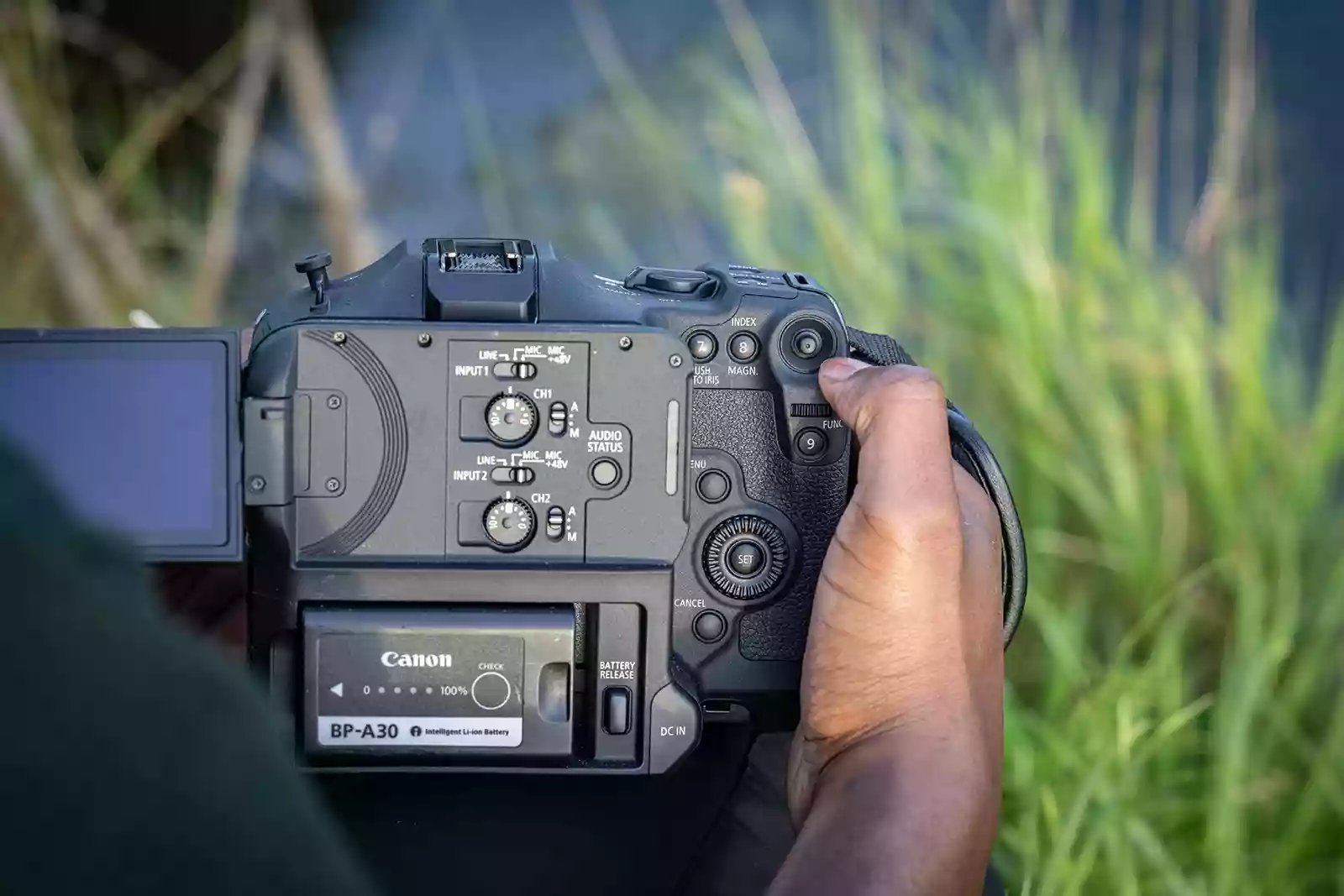
Audio capabilities
Good quality audio is essential for any production, whether it comes in the form of ambient sounds or voice in interviews, pieces to camera and so on. The C70 excels with audio capabilities allowing for 2x pro audio XLR inputs, both of which sport audio controls. The XF-AVC format delivers 24-bit / 48 kHz for some seriously pleasing audio.
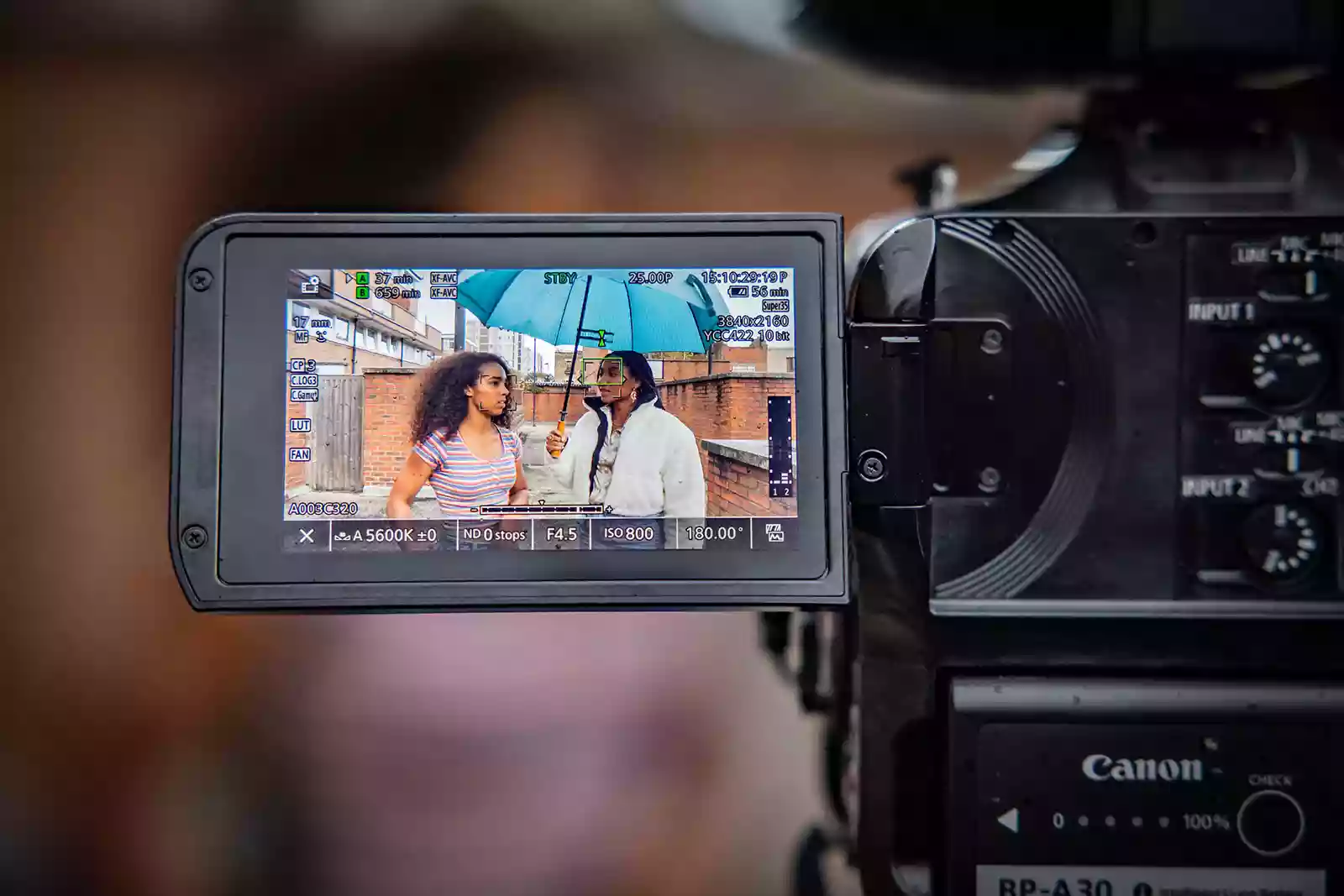
AF Capabilities
The introduction of a redeveloped Super 35mm DGO CMOS sensor has allowed Canon to utilise their highly acclaimed DUAL PIXEL CMOS AF throughout 80% of the sensor area. This keeps pace with other models in the range and ensures any AF will be quickly acquired and tracked with Canon’s latest AF technology.
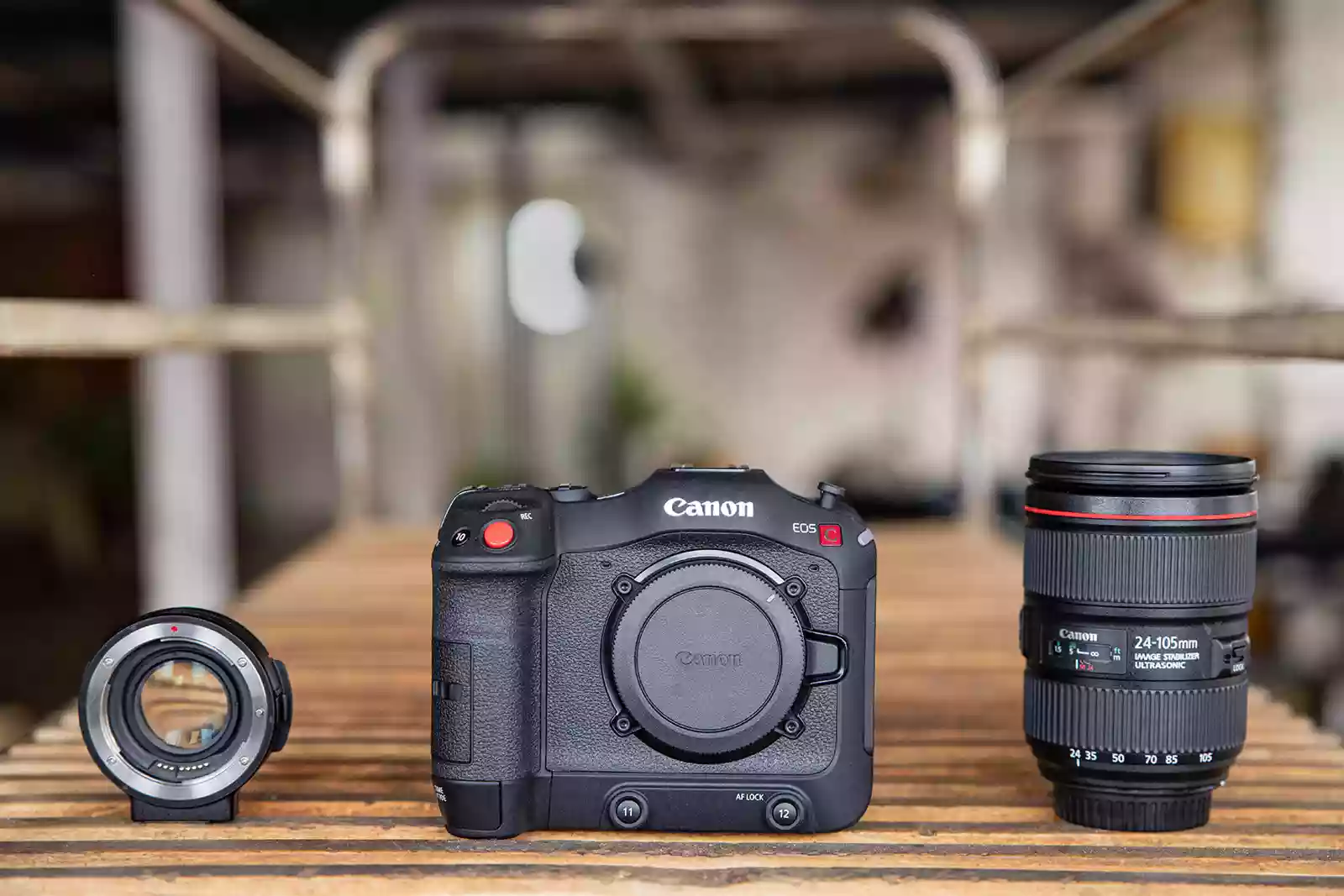
New RF to EF lens mount adapter
The release of the C70 warranted the production of the new Mount Adaptor EF-EOS R 0.71x. This allows users with existing EF lenses to utilise them on the new video camera with its’ RF mount. The adapter itself weighs in at just 200g and is extremely compact at only 20.7mm deep. It can be locked into place enabling the use of heavier lenses and retains key electronic contacts through 12-pin communication.
Conclusion
With the introduction of the C70 Canon is sending a clear signal that it will be supporting and expanding its’ new RF lens line-up throughout mirrorless and pro video cameras. The development of a short mount provides advantages with light collection, lens size as well as aperture possibilities. Read more about newer RF lenses here in our blog;
Share this post:
By Nick Dautlich on 24/09/2020
Nick Dautlich
Senior Content Writer and Product Reviewer
Nick Dautlich is the Senior Content Writer and Product Reviewer at Park Cameras, with over 15 years of photography experience. A Sony Imaging Professional and expert reviewer, Nick has worked with major brands such as Canon, Sony and Nikon. His work is also featured on Vanguard World UK’s website, Capture Landscapes, and Shutter Evolve. Nick’s photography includes National Trust projects and magazine covers and he is passionate about landscapes and storytelling. Nick also enjoys hiking and teaching his children about nature. Learn more on his profile page.
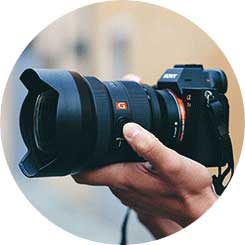
Trade in your old equipment
Fast and easy trade in service ensures your old gear is collected efficiently and you are paid quickly! It's very simple to trade in your unwanted photography gear. Just head over to our dedicated Sell or Part Exchange page, fill out the details, and we'll get back to you with an offer for your old gear. Take the cash, or put it towards the cost of your new gear. It's up to you! Find out more
sign up to the newsletter
Keep up to date on the latest photography news, events and offers. Sign up now
